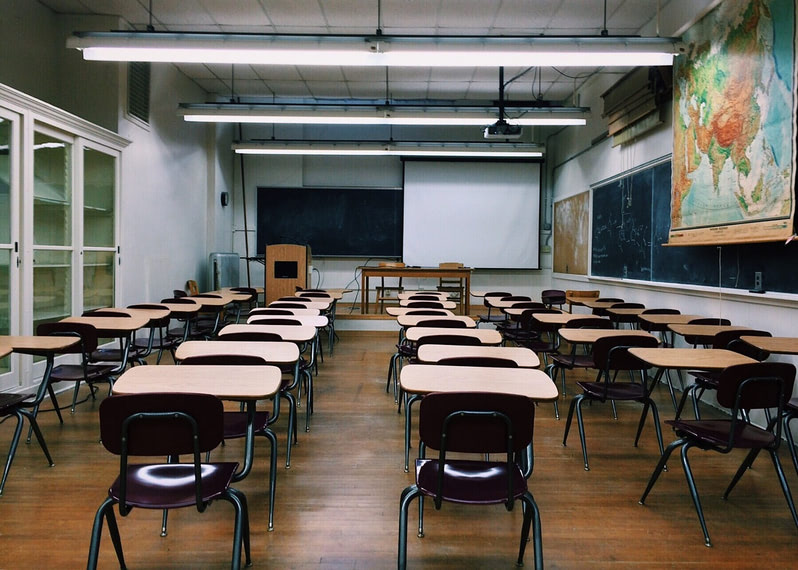‘Exceptional measures’ to boost fairness and support students ahead of 2021 summer’s exams and assessments – Sector Response

Students sitting exams and other assessments next year will benefit from a package of exceptional measures to make them as fair as possible and manage the disruption caused by Covid-19, Education Secretary Gavin Williamson announced today (Thursday 3 December).
- Government has prioritised exams going ahead and new measures will help ensure students receive a fair grade that reflects their ability
- Generous grading, advance notice of exam topics and additional papers will support students
- The measures account for disruption faced by students during the pandemic this year
In recognition of the challenges faced by students this year, grades will be more generous, students will be given advance notice of some topic areas, and steps will be taken to ensure every student receives a grade, even if they miss a paper due to self-isolation or illness.
The government has been clear that exams are the fairest way to judge a student’s performance and has made keeping schools and colleges open a national priority throughout the pandemic in order to minimise disruption to education.
Building on the three week delay to exams to free up extra teaching time announced in October, the new measures include:
- more generous grading than usual, in line with national outcomes from 2020, so students this year are not disadvantaged;
- students receiving advance notice of some topic areas covered in GCSE, AS and A levels to focus revision;
- exam aids —like formula sheets—provided in some exams giving students more confidence and reducing the amount of information they need to memorise;
- additional exams to give students a second chance to sit a paper if the main exams or assessments are missed due to illness or self-isolation; and
- a new expert group to look at differential learning and monitor the variation in the impact of the pandemic on students across the country.
 Education Secretary Gavin Williamson said:
Education Secretary Gavin Williamson said:
“Exams are the best way of giving young people the opportunity to show what they can do which is why it’s so important they take place next summer.
“But this isn’t business as usual. I know students are facing unprecedented disruption to their learning. That’s why exams will be different next year, taking exceptional steps to ensure they are as fair as possible.
“I am determined to support students, parents and teachers in these unprecedented times and hope measures like more generous grading and advance notice of some topic areas will give young people the clarity and confidence they need to achieve every success.”
Today’s steps follow extensive engagement with Ofqual, exam boards and senior leaders across the education sector.
The measures recognise that while teachers have gone above and beyond to support their pupils during a difficult period, some young people have had their teaching disrupted more than others and will need extra support to catch up on the curriculum and achieve their potential in exams.
In these instances, receiving advance notice of some topic areas and being given exams aids will support students and ensure they can move on to their next stage of education, training or employment with the grades they deserve.
Students taking vocational and technical qualifications will also see adaptations to ensure parity between general and vocational qualifications. Some vocational qualifications will require more varied adaptations due to the different qualification types.
The government has also developed a series of contingency measures with Ofqual that will mean, even if students miss one or more exams due to self-isolation or sickness but have still completed a proportion of their qualification they will still receive a grade.
If a student misses all their assessments in a subject, they will have the opportunity to sit a contingency paper held shortly after the main exams. In the extreme case where a student has a legitimate reason to miss all their papers, then a validated teacher informed assessment can be used, only once all chances to sit an exam have passed.
The government will set out further detail on this process, and on adaptations to exams, in the new year.
The government has also announced that full, graded Ofsted inspections will not resume until the summer term.
In the interim, Ofsted will conduct supportive monitoring inspections to those schools and colleges currently judged “inadequate” and some that “require improvement”. These inspections will focus on important issues like curriculum, remote education and pupil attendance, particularly of vulnerable children.
Ofsted will also continue to have the power to inspect a school, further education or early years provider, if they have serious concerns, including about safeguarding and remote education.
Sector Response to the ‘exceptional measures’ announcement for summer 2021 exams and assessments
 Chief Executive of Association of Colleges, David Hughes said:
Chief Executive of Association of Colleges, David Hughes said:
“There is no simple solution which the government could implement to ensure that exams are fair for everyone in 2021, but the range of adaptations announced today will help make things fairer. There is an urgency on this because over 50,000 students will sit BTEC and other technical exams in January and all students want certainty about how assessments and grades will be carried out as soon as possible. We will continue to work with Ofqual, DfE and awarding bodies to ensure that students taking vocational and technical qualifications are equally supported through this year.
The biggest challenge is the differential impact of the disruption to students. We know that some communities have been harder hit than others, particularly disadvantaged groups. The negative impact of lost learning has already been felt and extra ‘catch up’ support will not fully compensate this. The creation of an expert group to look at this is helpful but teachers and centres are in the best position to measure the direct consequences this will have.
I am pleased to see the common sense decision that full Ofsted inspections will not commence until summer term – they would be impossible to carry out fairly and safely in these conditions – but would urge DfE not to continue barring colleges with legacy ‘requires improvement’ grades from being able to deliver T Levels, Institutes of Technology and other programmes where they have good sustained progress on quality.”
 Tom Bewick, Chief Executive of the Federation of Awarding Bodies (FAB) said:
Tom Bewick, Chief Executive of the Federation of Awarding Bodies (FAB) said:
“FAB welcomes the fact that ministers have listened to concerns about how to ensure a fairer system of exams and assessments next year. With exams going ahead; and so much teaching time already lost; there has to be workable contingency plans and special considerations for students affected by the pandemic put in place. The crucial next step will be to ensure that experts in awarding organisations, including the wider sector, are really able to shape and influence the detailed plans. That should include those niche AOs, that deliver an array of vocational assessments being consulted, as well as the large exam boards.
“We welcome parity between the treatment of general qualifications and vocational qualifications. However, we also need to remember that a one size fits all approach for academic qualifications next summer does not simply read across to vocational and technical qualifications. Adapting these quals is more complicated and resource intensive than GCSEs and A-Levels. We look forward, therefore, to working with Ofqual and the Department for Education in recognition of this point.”
John Jolly, Chief Executive, Parentkind, said:
“We welcome the clarity that the Department is providing for parents of young people preparing to take their exams in Summer 2021. Parents have told us that the uncertainty over arrangements for exams has been a source of concern and anxiety for both them and their children.
“Parents and young people will be relieved to have a clearer sense of what the arrangements are and how this will ensure that individual circumstances are taken into account. At Parentkind we will continue to raise Parents questions about the arrangements going forward.”
Leora Cruddas, Chief Executive, Confederation of School Trusts, said:
“Given the disruption to teaching last year, as well as the likelihood of ongoing disruption this year, it is increasingly likely that large numbers of students will not be able to cover all the content needed for examinations, as they would in a normal year.
“These steps help students feel confident about their exams as an important step towards making the system is as fair as possible.”
Test and exam results will not be included in performance tables this year, and instead will be replaced by attendance information, and student destinations and the subjects taken at key stage 4 and 5.
These changes take account of the challenges posed by the pandemic but will ensure parents still have access to vital information about their local school.
The government has also reviewed remote education guidance and published updated expectations to provide further clarity for schools, colleges, parents and pupils. Primary schools are expected to provide a minimum of three hours a day on average of remote education, with secondary schools expected to provide at least four hours’ worth.
Similar expectations will apply for colleges and other further education providers which take into account the sector’s role in delivering both academic and technical provision.
For primary assessments, key stage 1 tests in English reading and mathematics, and the English grammar, punctuation and spelling tests at key stage 1 and 2 will be removed for one year, in recognition of the challenges posed by the pandemic.
Schools can take a flexible approach to the administration of the key stage 2 tests and phonics screening check, by extending the original timetable by a week, until 26 May and 25 June, respectively.
Although primary performance data will not be published, teacher assessment in English reading, writing and mathematics at key stage 1, and all other assessments at key stage 2, will remain. These measures will help to understand pupils’ lost time in education and support those that need it most, providing vital information to parents and assisting with pupils’ transition to secondary schools.
Martyn Oliver, Chief Executive of Outwood Grange Academy Trust, said:
“As a Trust which supports 39 schools in the North of England, of which 35 are located within a Tier 3 region since the national restrictions ended, our focus has been and remains on how children who have faced unprecedented disruption will be treated fairly.
“By running exams with these measures and committing to looking at the differential loss of learning, our children and their parents can feel assured work to level-up is serious.”
Ian Pryce, Chief Executive of Bedford College, said:
“The Department and Ofqual have consulted genuinely, widely and seriously and I hope this will reassure students, parents and teachers.
“Great care is being taken to ensure students will have an opportunity to sit their exams; will have longer to prepare, and will be given information and options to help them achieve even where they have seen a reduction in face-to-face teaching.
“Maintaining overall standards roughly at last year’s level recognises the variability of the experience of different students. It is the appropriate decision and will help students achieve a good outcome.”
Lesley Powell CBE, Chief Executive of North East Learning Trust:
“The measures put in place offer a sensible and pragmatic route through the wake of COVID disruption and offer staff and students a clear target for next year.
“The approach covers a range of contingencies that will hopefully instil confidence in the exam process and reduce stress for everyone involved. Exams are an important aspect of children’s educational experience, and indeed of growing up; allowing these to continue, in as fair a way as possible, I strongly believe is the right thing to do.”
 James Turner, CEO of the Sutton Trust, said:
James Turner, CEO of the Sutton Trust, said:
“This year’s assessment process caused major anxiety and uncertainty for students. It is welcome that the government has taken steps to mitigate against it happening again, whilst still giving students the opportunity to sit their exams, which is on balance likely to be the fairest approach.
“But it is lower-income pupils who will have lost out the most this year as a result of interrupted schooling. And while these new measures will benefit the cohort as a whole, we would like to see more consideration given to how to address the inequalities in teaching and learning currently being felt, and to preventing gaps from opening up further.
“The measures to give pupils advance notice on some topics needs careful management to ensure it does not widen existing attainment gaps, as students at more affluent schools may have better access to the resources to prepare these topics in detail and at short notice. It is crucial this is implemented in the fairest way possible.
“Given the circumstances, no exam system could do justice to the disruption being felt and how uneven the impact will be. So alongside all of this, we would like to see universities take the uncertainty of this academic year into account in their admissions, with offers that reflect the very many challenges that some pupils face.”
 Dr Mary Bousted, Joint General Secretary of the National Education Union, said:
Dr Mary Bousted, Joint General Secretary of the National Education Union, said:
“It is welcome that the government has at last shown that it is beginning to understand the concerns of teachers, parents and students about next summer’s exams and recognised that we cannot plough on ahead without further adjustments. However, the fact this realisation has come so late means potentially more useful options than the ones announced today have become less viable.
“Disruption has continued for thousands of students with around 20% of secondary students absent in the last week for which we have figures. What is even more concerning is that the students who are already the most disadvantaged are more likely to live in regions where there are high Covid-19 infection levels and are missing more schooling as a result.
“Getting qualifications right and making assessments as fair as possible is a critical social justice issue. It means that the test of the government’s proposal must be whether it can compensate sufficiently for the inequality in access to in-school teaching and for the 700,000 pupils who have no access either to laptops or to the internet. On balance, we judge the government proposals to be insufficient to meet these challenges.
“The Westminster government’s slow decision-making process on secondary exams and qualifications is better than nothing, but far less helpful than it could have been if it had been made sooner. Pupils and their teachers will be concerned that these changes are so different from those being made in other UK nations, when these students will be in competition for university places and jobs.
“The decision to implement more generous grade boundaries in line with outcomes from 2020 is a welcome response which will go some way to reflect the disruption experienced by students this year. However, this is not a complete solution. Because grades are awarded by putting students in a rank order, those who have had less opportunity to prepare for the exams – for example because of repeated periods of isolation – will be placed further down that rank order. Adjusting grade boundaries is not a solution to the issue of differential access to learning: it does nothing for a student’s position in the national rank order.
“Whilst teachers of GCSEs and A levels will welcome information on what topics will be covered, the fact remains that the details of this are needed now. Schools do not teach the syllabus in the same order which means that many students, and in particular those who have had repeated periods of isolation, will not have been taught the topics included on the exam paper. Delays to these details will mean that these students will have to play catch up while others are beginning their revision.
“We welcome proposals to adapt vocational and technical qualifications. Some of the required units for these must be done in school or college, which has been a major obstacle in some areas of the country. The number of options and assessments must be reduced in order for these students, many of them disadvantaged, to achieve their qualifications.
“Exhausted teachers and leaders will be relieved that Ofsted will not be carrying out routine inspections in the spring term, and that test and exam results will not be reported in performance tables. It should have been obvious that Ofsted poses potential dangers to Covid-19 security in schools and colleges and that during a pandemic, their inspections will reveal very little of value to parents. The suspension, this year, of school league tables demonstrates completely that this is not education as normal and that Ofsted should stay away for the whole of the academic year.”
 David Laws, Executive Chairman of the Education Policy Institute said:
David Laws, Executive Chairman of the Education Policy Institute said:
“Taken together, the government’s measures announced today provide a reasonable strategy to ensure students are better-equipped to complete their exams next summer following the disruption to their education.
“We are supportive of plans to announce exam content early on, to enable students to focus on certain areas – but this needs to be made available immediately. The government should outline this content no later than the first week of January, to allow schools and students sufficient time to prepare.
“Plans to adjust grading to allow a higher pass rate are in line with our recommendations and will also help to cushion any learning loss. We also welcome the government’s decision to allow equivalent generosity for the hundreds of thousands of students who are taking vocational qualifications. However, we still need a plan to ensure that those taking technical qualifications who have lost learning time can achieve work-ready proficiency.
“Awarding a full grade to students even if they can only sit one exam in a given subject provides an important insurance policy, and we also agree that colleges and universities should apply greater flexibility and discretion when considering admissions for autumn 2021.
“It is very clear that some students will have lost much more learning time than others this year through no fault of their own, due to their social background or because their area has been hit harder than others by the pandemic. The government is therefore right to consider whether further action needs to be taken to recognise this. It now needs to engage with experts on the potential options so that we can ensure plans are both fair and proportionate.
“All of the changes to assessments and results set out by the government today are important for students and schools, but it is also critical that we look beyond exam grades at how we can support students’ underlying learning progress, which has been thrown off course by the pandemic. The government’s current pupil catch-up plans are poorly targeted and do not go far enough to mitigate against all of the lost learning time experienced this year. Additional funding, targeted at the most disadvantaged pupils, needs to be made available this year and in future years.
“The GCSE attainment gap between the poorest pupils and the rest was already over 18 months before Covid struck the education system. If the government fails to support these pupils now, there is a real risk that further inequalities open up in the future.”
 Dr Philip Wright, Director General of JCQ, said:
Dr Philip Wright, Director General of JCQ, said:
“We share the Government’s belief that exams and assessments are the best way to assess students’ abilities and provide a fair and level playing field for progression into Higher Education, Further Education and employment.
“We believe that the vast majority of students will be able to complete their full set of exam assessments and, with the contingency papers should be able to complete at least one form of exam or assessment to allow a grade to be awarded.”
“JCQ will need to reflect with DfE and Ofqual in the New Year on when and how ‘validated teacher informed assessment’ would be used.”
“We are pleased to see that Government has recognised that an equitable approach needs to be taken for similar vocational and technical qualifications where the purpose of the assessment is comparable, to ensure a level playing field for progression.
“The Government will also convene an expert group to look at the impact of lost teaching time in different groups of students. We welcome this approach and look forward to engaging with DfE and Ofqual along with stakeholders, but note that time is of the essence for this group to make its recommendations early in 2021.”
 Paul Whiteman, general secretary of school leaders’ union NAHT, said:
Paul Whiteman, general secretary of school leaders’ union NAHT, said:
“In September we were faced with secondary exams proceeding unaltered, all primary assessments going ahead as normal, full publication of performance data, and a return to inspection in January.
“This announcement brings with it some much needed relief to school leaders who have been operating in ‘emergency mode’ for most of this year. The reduction of some of the burdens in the system will begin to allow school leaders to focus on the quality of education they are determined to provide for pupils.
“Whilst the government has not gone as far as we would have liked, they have moved significantly towards the profession. We will continue to work with them on the areas where we still have concerns.”
 Rae Tooth is CEO of Villiers Park Educational Trust
Rae Tooth is CEO of Villiers Park Educational Trust
“Given that disruption to students’ education is uneven and varies hugely depending on where they live and their socio-economic environment, there is no easy solution which the government could implement.
“The steps announced today will help some students, but at Villiers Park we remain to be convinced that stubbornly pressing ahead with exams is preferable to a form of continuous assessment which could make use of teachers’ expertise in assessing a student’s progress within the context of the education they have received during this difficult academic year.
“We will monitor the situation closely and continue to put pressure on the government to ensure that disadvantaged students do not lose out as a result of the processes put in place.”

“We are delighted that the DfE has recognised the difficulties schools face in ensuring students have a fair chance in exams this summer. We agree wholeheartedly that exams must go ahead.
“Generous grading, pre-released content, and allowing for missed exams through an extra session or teacher assessment are all measures to be welcomed, and will make a real difference to young people and schools.
“The absence of exam results in performance tables for this year is a huge boost for schools, and exactly what we have been calling for – scrutiny is important, but in the circumstances of this year the absence of the perverse incentives of the accountability system will free schools to simply focus on securing the best possible destinations for their students, and focusing on the key qualifications they need to do so.
“However, it is vital that we go further. None of the above measures address the widening gap that Covid makes inevitable. They help all students equally, and will leave the most disadvantaged just as far behind.
“If we can allow the judicious use of centre assessed “certificates of completion” in place of the exams that are not central to progression, we can begin to mitigate this.
“The suggestion of an asterisk against the grade of those most disadvantaged by Covid also has merit.
“Finally, we must give proper consideration to the students for whom learning loss has been so extensive that any grade this year will never represent a true measure of their capacity.
“These students must be guaranteed the chance of a resit year, with no jeopardy, and schools and colleges must be funded to provide this.”
 Kate Green MP, Labour’s Shadow Secretary of State for Education, responding to Government’s plan for exams, said:
Kate Green MP, Labour’s Shadow Secretary of State for Education, responding to Government’s plan for exams, said:
“The government have finally listened to calls from Labour, pupils, parents, and school leaders and set out a plan for exams, but they have been far too slow to act. This plan should have been in place months ago, to give certainty to pupils across the country who were worried about their exams. Dither and delay has made it harder for schools to prepare and created huge, additional stress for pupils.
“These proposals still do not offer enough reassurance to pupils in the regions worst hit by coronavirus who have seen their learning severely disrupted. The government’s new expert group must urgently set out how they will make exams fair for these pupils, and what measures will be put in place now for pupils taking exams next academic year who are losing learning now.
“We will look closely at the detail of these measures, and ensure that the interests of pupils and parents are put first.”
Kate Green MP, Labour’s Shadow Secretary of State for Education, responding to a statement on exams and accountability in the Commons today, said:
“I thank the Secretary of State for advance sight of his statement, and the Schools Minister for discussing these proposals with me and colleagues yesterday.
“I’m glad the Government have finally responded to the pleas of students, their parents and teachers who’ve been asking for months how next summer’s exams will be conducted fairly.
“But while I welcome measures that will help mean pupils will be assessed on what they have learned, that reserve papers will be in place for pupils who might miss out, that performance tables will be suspended and that routine Ofsted inspections will not resume in January – many of the measures that Labour called for – today’s announcement still bakes in fundamental inequities between students who’ve suffered different levels of disruption to their learning. I also welcome his decision to suspend league tables this year.
“Mr Speaker, the Government have known since September that an ongoing pandemic would create huge challenges in schools, and for months they will have heard school leaders, parents, and Members on this side of the House calling for a credible plan to address them. It took them until December to provide one.
“So can the Secretary of State tell us what took him so long? Why did he leave students in a horrible and uncertain limbo?
“The truth is that dither and delay have limited the Department’s options. Had they acted sooner they could have done more to make the system fairer. I do welcome the decision to make the distribution of grades similar to last year’s, to ensure that pupils sitting their exams this year do not feel unfairly disadvantaged.
“But we know that, last year, while grades rose across the board, some pupils – particularly those in private schools – were more likely to see a sharp rise. So how is he going to ensure this year that the distribution of grades is spread evenly across not just subjects, but across schools and postcodes, to ensure that the most disadvantaged pupils are treated fairly?
“And is he not concerned that providing info in advance about subject content will benefit pupils at random, with those who happen to have already covered the assessed material benefitting at the expense of those who did not? At worst, will it not in fact mean that pupils who have faced the greatest disruption to their learning still lose out the most?
“He mentioned the Government’s new expert group but can he tell us why, when changes were so clearly going to have to be made to exams, the Government has been so late setting this up? And can he confirm exactly when this group will report, the suggestion this morning that it will report in spring he must know far too late to help pupils sitting exams this academic year?
“There was significant support for greater optionality in exams – an approach his Department took for some exams. This would allow pupils to be assessed on what they’ve learned with fewer pupils losing out at random. If it works for some objects, can the Secretary of State explain clearly why this is not part of today’s announcement?
“What is he doing to address the fact that over a million pupils were out of school this week? We know that exam classes in some regions have faced disproportionate levels of disruption. I asked him two weeks ago how many pupils have been out of school two, three, or more times because of coronavirus. He still hasn’t supplied me with the info – doesn’t he know it? What can he tell us about how different regions are affected?
“How many of those children who have been out of school have had full access to remote learning. How many laptops have been delivered to students who need them? Why are we continuing to hear reports of schools receiving laptops only after students isolate, wasting valuable time getting them set them up and delivered.
“It is one thing to update guidance, it is quite another to actually support schools to deliver remote education to all who need it. And why has the NTP now been stretched more thinly across two years – can he even guarantee that all students on FSM will have access to tutoring?
“We know that many students sitting exams next summer want to go on to university or college. Can he ensure that the approach he takes – and I know the possibility of an asterisk by grades has been discussed – do not make pupils feel stigmatised?
“What discussions is he having with colleges and universities to ensure any additional support these students may need will be in place for them next September. And does he believe any changes will be needed to the timings of university admissions?
“Does he acknowledge that there are likely to be more appeals than in a normal year? How will he ensure all students can access a fair appeals process? And how will he ensure that there are the markers, with the time and resources needed to grade these papers in time, particularly in the second exam window?
“Can he tell us when pupils taking vocational and technical qualifications will receive greater clarity? And what steps are they taking to clear the logjam on the testing of apprentices’ functional skills in maths and English?
“Mr Speaker, the Government have finally acted, but they have been far too slow, and the measures announced today simply won’t address the inherent unfairness that students who’ve lost the most learning will suffer the greatest disadvantage when they take exams next summer.
“I want students to have the chance to show what they’ve achieved in the most challenging of circumstances, but after months of silence, these proposals fall short of the fair exams process the Secretary of State promised. This is at best a ‘requires improvement.”











Responses